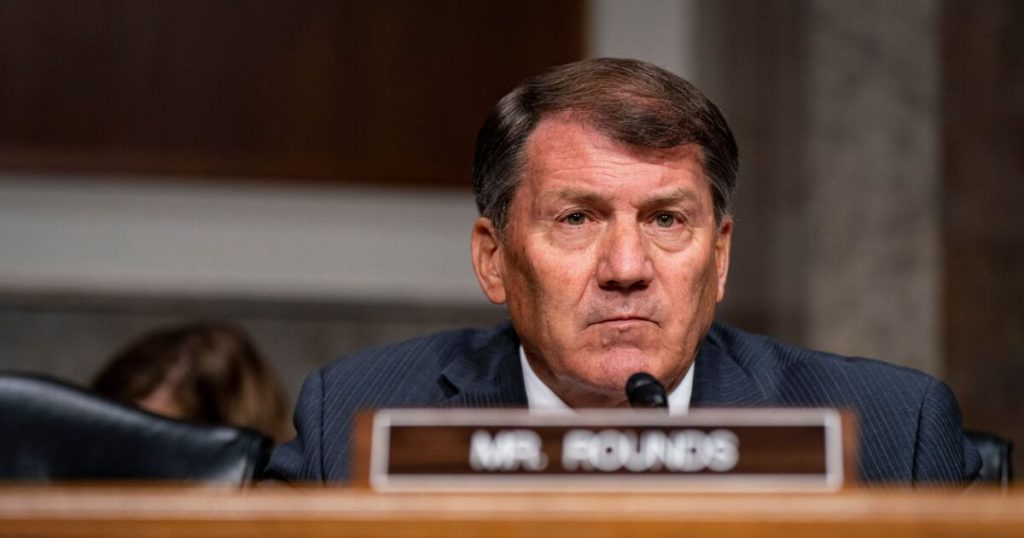Al Drago/Bloomberg
When Ken Chapman, principal at T10 Ventures, applied to open a new account with USAA last week, he knew the potential flags his crypto dealings might raise. He went out of his way to call USAA directly, instead of applying online, so he could explain his crypto investments.
Over the phone, Chapman told the USAA representative that while he would be frequently transacting with Coinbase, all of the money exchanged would be in U.S. dollars; there would not be any cryptocurrencies flowing in and out of the account directly.
“They were like, whoa, whoa, whoa, hold up,” Chapman said. “The representative went away and [when he returned] he said, ‘I went and talked with two senior people and you can’t have crypto coming from Coinbase into your account.'”
Chapman said he then repeated crypto would not be going into the account: He would convert it to U.S. dollars in Coinbase and only U.S. dollars would be deposited into the USAA account.
“And I was told it doesn’t matter — regardless, you can’t do that. You’re not going to have an account with us,” Chapman said. “At that point, I was kind of taken aback because given my long history with USAA and service in the military, I was surprised that they weren’t going to let me have an account.”
He took to
“Our members can move money to and from alternative payment platforms when consistent with applicable laws, regulations and regulatory expectations,” said a spokesman for USAA in a statement.
Chapman said even though he was told USAA would be happy to have him as a customer, he opted to take his business elsewhere, concerned over potential future issues.
Debanking, or refusing to allow someone to hold an account at a financial institution, has been a
On Tuesday, Coinbase, the largest crypto exchange in the U.S., sent a letter to the Office of the Comptroller of the Currency, Federal Reserve and Federal Deposit Insurance Corp.,
Concerns over
The comment on one of the most listened to podcasts on Spotify quickly gained traction with others online claiming they too had experienced debanking due to crypto holdings. Billionaire Elon Musk later posted a segment of the interview on his social media site X, formerly Twitter, urging users to “forward this video to friends and family to understand just how evil the government has been.”
The Trump administration has signaled a crypto-friendly stance. Acting FDIC Chairman Travis Hill said Wednesday the agency’s approach “has contributed to a general perception that the agency was closed for business if institutions are interested in anything related to blockchain or distributed ledger technology,” and he
“These banks want to look for business but because of a regulatory environment that they have been in, they have been forced to decide whether they want to do business with certain types of industries,” said Senator Mike Rounds, R-S.D.
The House Oversight Committee last month announced in a letter addressed to several fintech CEOs that it was investigating “improper debanking of individuals and entities based on political viewpoints or involvement in certain industries such as cryptocurrencies and blockchain.”
The Trump administration, where Musk is playing a pivotal role, has already taken
Fintech and cryptocurrency companies have said they were unfairly targeted by regulators under former President Joe Biden’s administration in its efforts to tamp down on money laundering. It’s a claim regulators deny but one that has ignited conservatives. Trump in the EO promised his administration will “protect and promote fair and open access to banking services for all law-abiding individual citizens and private-sector entities alike.”
At the American Banker
“I think the new administration will take the politics out of bank supervision, which I think is a gigantically important thing,” said Faryar Shirzad, chief product officer at Coinbase, at the December summit. “To have a situation where with every incoming administration, we all have to guess as to which industries they may or may not like, and then figure out if those industries are going to be potentially cut off from banking services is just extraordinarily damaging to a well-functioning economy and well-functioning society, and I think that will immediately come to an end.”
Banks have a longstanding practice of closing what they consider to be “high risk” accounts and they are permitted to do so for a variety of reasons ranging from insufficient funds to suspicions of criminality, including funding of terrorism or human trafficking. Banks are required by federal law to file suspicious activity reports if they believe criminal activity is happening. If they don’t, they can face more than $1 million in fines and employees may see up to a decade in prison.
Legally, banks cannot tell customers why their accounts have been closed if they are for suspicious activity, as outlined in the FFIEC BSA/AML manual. This leaves room for confusion and difficulty to arbitrate.
Part of the surprise many investors felt when Chapman shared his LinkedIn post came from his background. Chapman is a West Point graduate and army veteran, making USAA an obvious choice for him. He also spent more than a decade in the financial industry working for big banks before making the jump to crypto currency. He even had a stint at Anchorage Digital, the first nationally chartered crypto bank.
“I have a traditional background, so when my LinkedIn post gained traction, it was kind of like ‘Hey, whoa, if Ken can’t get an account, if Ken’s getting shut down, what about the rest of us out here?'” Chapman said. “I was just trying to get an account. I wasn’t trying to bait USAA. I wasn’t trying to do anything.”

